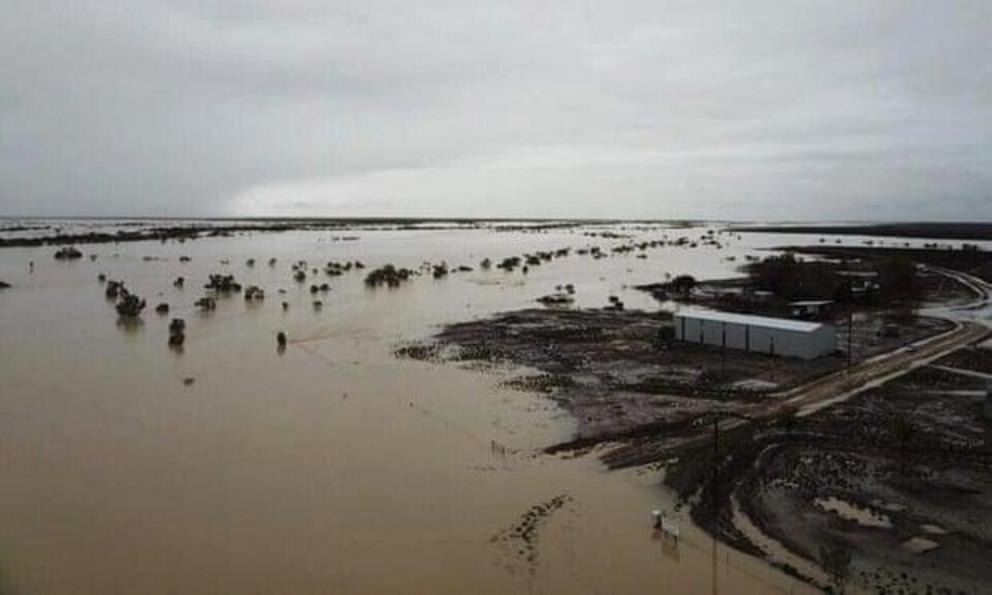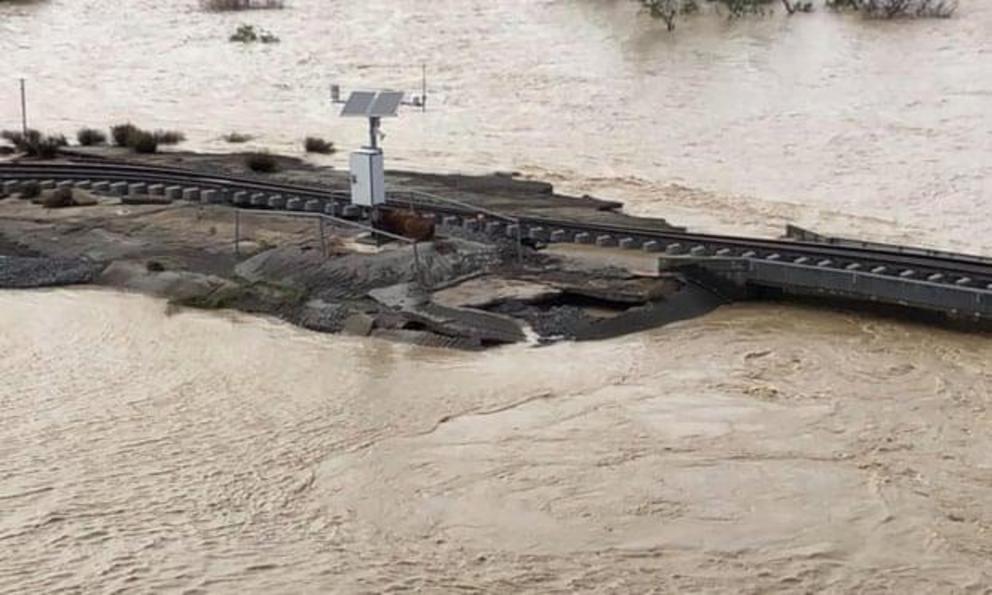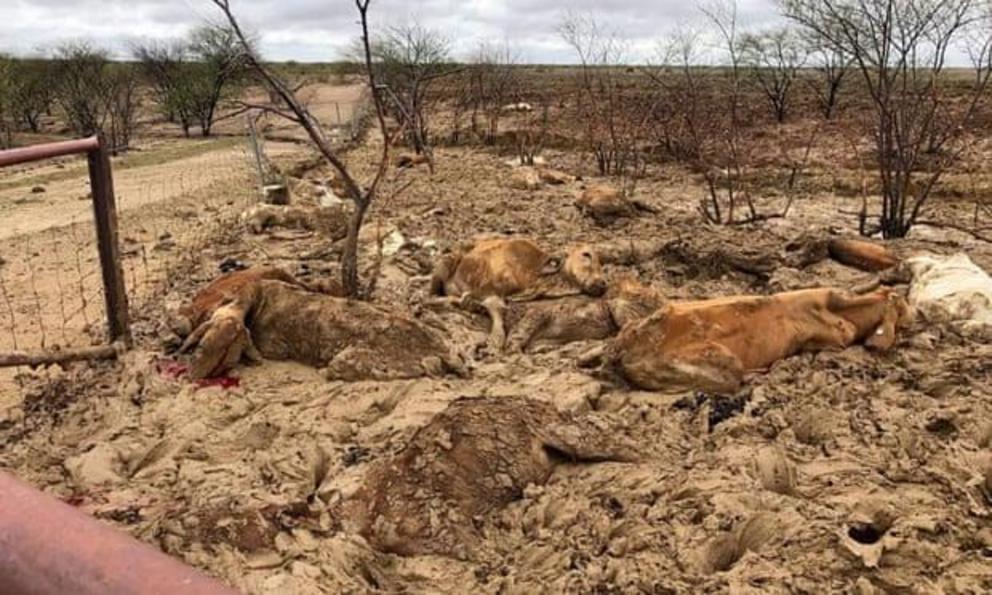Up to 500,000 drought-stressed cattle killed in Queensland floods
After years of drought graziers were elated when the rain came. Now floods have created a humanitarian crisis
In north-west Queensland it hadn’t rained, any decent rain, for more than five years.
When the downpour finally came last week, graziers were elated. Now it’s feared up to 500,000 cattle, mostly from severely drought-stressed herds, have been killed in widespread flood waters.
The full extent of the losses won’t be known for weeks; some properties remain underwater and the flood waters are moving south. But the agricultural industry’s peak body says the situation has already become “a massive humanitarian crisis”, affecting an area twice the size of Victoria.
After a prolonged drought, some rural parts of Queensland received three years’ worth of average rainfall in a week.
At Eddington station near Julia Creek in western Queensland, Rachael Anderson says she lost about 2,000 cattle, roughly half the station’s herd. Farmers know recovering from such stock losses will put them under severe financial stress.
“I can provide for my family right now,” Anderson said. “But in six months’ time or when the bank comes for their repayment, I don’t know what I’m going to do, none of us know what we are going to do.
“We can’t get loans because we’ve got nothing to borrow against, none of us have got anything left.
“I’m not going to lie, it will finish some people up, but others will be rebuilding.”
Parts of Eddington station have been badly eroded from the vast amount of flood water that washed through, and there are now dead cattle in the creek, which they had been using for water to brush their teeth and wash clothes.
 Rachael Anderson of Eddington station says she has lost about 2,000 cattle, roughly half the herd.
Rachael Anderson of Eddington station says she has lost about 2,000 cattle, roughly half the herd.
She said a rotting stench had set in, but farmers still don’t know what to do with the livestock.
“There are feral pigs that will come and eat that, there are feral cats that will come and eat that, and there will probably be a plague of them after this.”
The chief executive officer of AgForce, the peak body for the Queensland cattle industry, Michael Guerin, said farmers could take decades to recover.
“There is no doubt that this is a disaster of unprecedented proportion,” Guerin said.
“The speed and intensity of the unfolding tragedy makes it hard to believe that it’s just a week since farmers’ elation at receiving the first decent rains in five years turned to horror at the devastating and unprecedented flood that quickly followed.
“The latest reports confirm our earliest fears (that) this is a massive humanitarian crisis ... and is steadily expanding southwards.”
The group has sent emergency fodder to more than 150,000 head of cattle that have no other access to feed.
 Dead cattle at Eddington station. AgForce says it could take farmers decades to recover.
Dead cattle at Eddington station. AgForce says it could take farmers decades to recover.
Guerin said the full extent of livestock losses would not be known until the water fully recedes, but some estimates put losses up to 500,000 out of 10.5m head of cattle in Queensland.
“I implore governments of all levels, as well as other agencies involved in this mammoth undertaking, to put aside red tape, bureaucratic wrangling and patch protection, and understand the desperate situation of so many producers.
“The loss of hundreds of thousands of cattle after five, six, seven years of drought is a debilitating blow not just to individual farmers, many of whom have lost literally everything, but to rural communities.
“Some farmers have lost everything, literally everything, except an ever-growing debt, and our first priority is to make sure that they are OK,” he said.
“We thank governments and the Australian community for the support they have shown so far, but we need to ensure that farmers and the communities they keep alive are supported for the long haul. Even as we work through the logistical issues ... we need to be deploying specialist well-being professionals in.”
The federal government will provide an immediate ex gratia payment of $1m to affected shires, the prime minister, Scott Morrison, told the national press club in Canberra.
“This payment will be for them to use on priorities they deem most urgent, whether that be rate relief for impacted properties, infrastructure, or the disposal of cattle which have perished,” he said on Monday.

